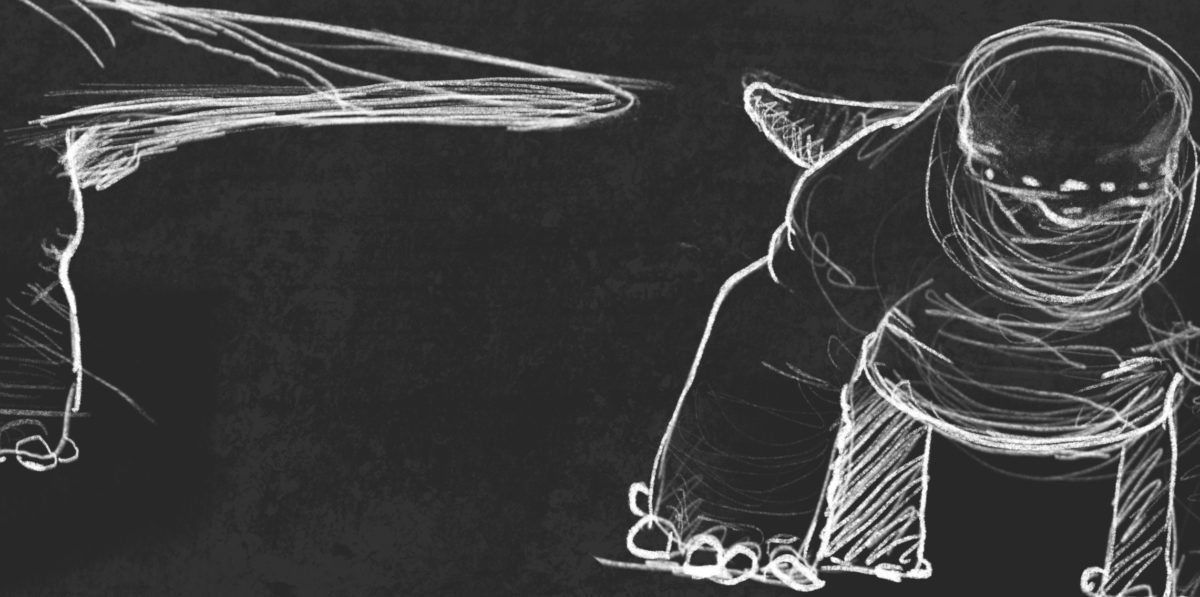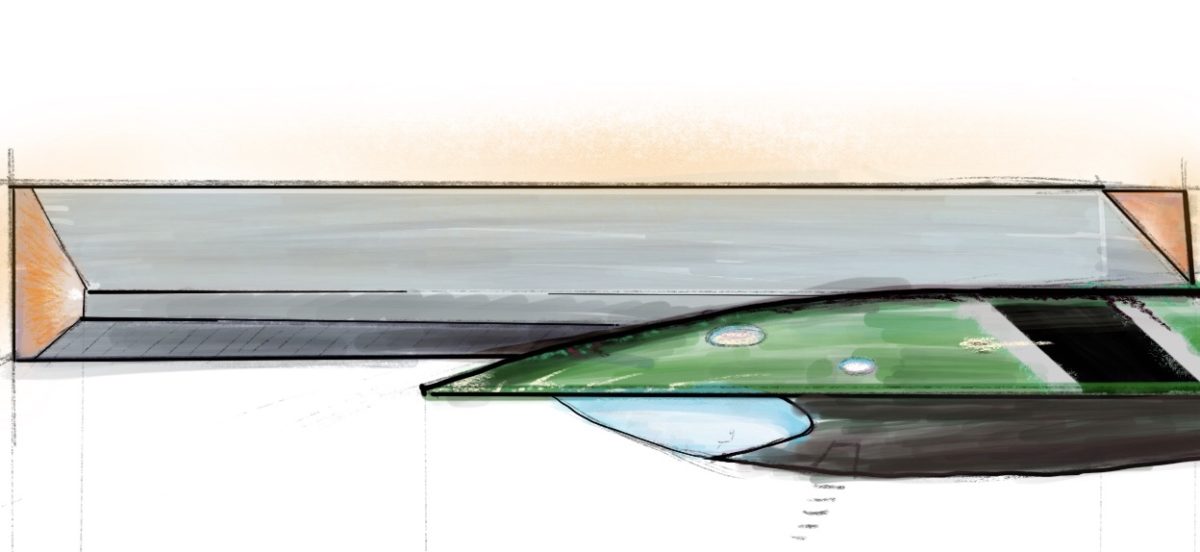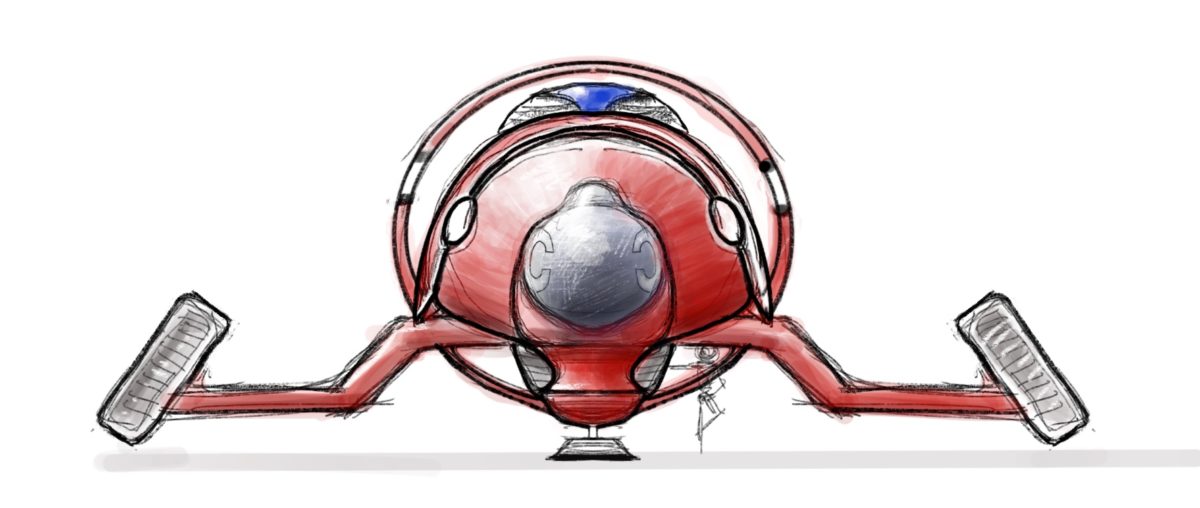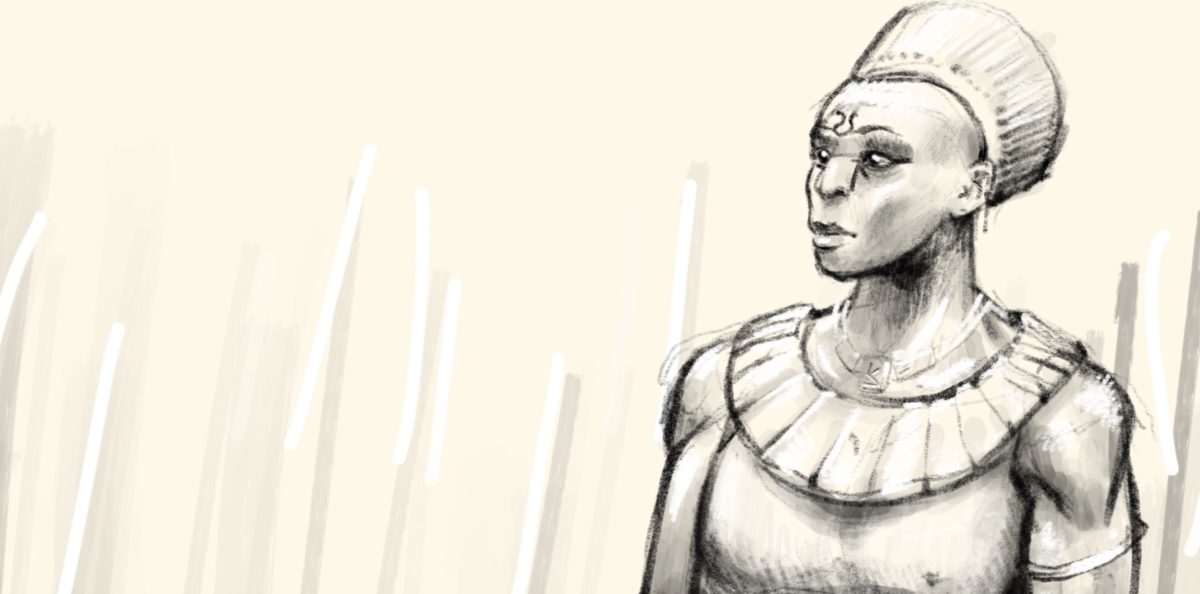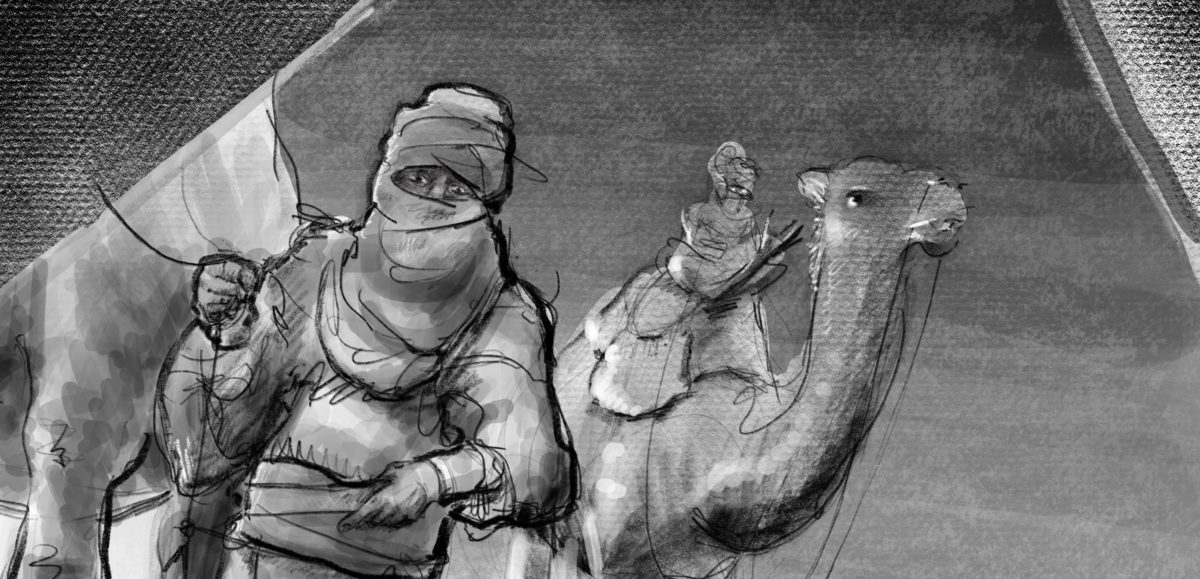I was having a hard time illustrating Bahamut, so I needed to figure out its physiology. Were one to back up against the Vault of Heaven, this might be what you would see far below, somewhere. How this beast manages to hide is a deep mystery. It surely does not want to be found.
Continue reading “Bahamut, whose Stride Spans the Horizon”Category: R∈R⟺R∉R
The Sunken
Among the creatures described in the Monsters chapter that the backers of The Bloody-Handed Name of Bronze and the xenophiliacs received last night were The Sunken. But that page was unillustrated, with just a placeholder where it went.
Continue reading “The Sunken”The Iguk
The Iguk is one of the monsters listed in The Bloody-Handed Name of Bronze. It guards the opal skeleton of Yog Shul and is duty-bound to return any piece stolen. To accomplish its task, it is thus blessed: that it may never be killed the same way twice.
Continue reading “The Iguk”Protected: The Monsters (for xenophiliacs & Kickstarter backers!)
Free Explorer Emerald
The Emerald was originally built on Kantauri Five and titled Jannisary as a coast guard irregular vessel to patrol the interplanetary spacelanes of the Kantaur system, but after its hull fractured in pursuit of Betan lurra smugglers, the ship was scrapped.
Continue reading “Free Explorer Emerald”Free Explorer Wanderer
The Wanderer is a craft owned and operated by Captain Tali Att as they ply Wild Space, looking for new hyperspace routes and alien artifacts.
Continue reading “Free Explorer Wanderer”S16: Forward Voltage, Current Limitation, and Preventing Clipping
The purpose of the S16 analog synthesizer communication network protocol is to make direct, machine-to-machine collaboration between experimental musicians safe and easy, guided by curiosity. Naturally, as I’ve been refining and experimenting, I’ve been finding ways to make it more difficult. But at least I don’t think it’s less safe.
Continue reading “S16: Forward Voltage, Current Limitation, and Preventing Clipping”Hanta, the Sacrificial Pharaonic Oarsbearer
The World of Names writhes with living promises, the words of Namedealers plying the whims and vanities of the mighty forces of nature.
But Hanta has made a promise to enter the Waters of the Underworld. To most, that would be a simple condemnation to death. And Hanta is fairly certain that for her, it is, too.

As she rows downstream, dressed in the splendrous ceremonial regalia of an escort of the Pharaohs, she broods on her fate, bound she is by a complex knot of long-held promises — a knot pulled tight by generations of treaties spun by the priests, astrologers, and magicians of Misr with the river; with the Sky that covers it with its unblinking eyes; with the towns and ports that seed its shores with life; with vassal kings and heroes.
Losing hope, she accepts the offer of the young, pretty courtesan Tinkari for companionship.
…and to uncover what transpires between them, you will need to read Hugo-nominated author Mimi Mondal’s tale, detailed in the pages of the upcoming Bloody-Handed Name of Bronze! Of course, like all of my work, you will be able to see it first as a patron of my work at my Patreon!

Good Morning
The Children of Shama have strict hospitality rules that require them to offer sustenance and shelter to anyone lost in the desert. On the whole, this works out well, since it gives some assurance that one will be rescued if one finds oneself alone. It also means that, should a Child of Shama set out across the desert, they will be able to intercept other tribes and know that they will be offered water and at least minimal provisions.

But the owner of this tent doesn’t know what they’re doing. They’ve made the mistake of traveling in the day and sleeping at night. The tent owner awoke to find these two travelers approaching with curiosity, preparing, as the sun rises, to make camp for the day and sleep through the high heat.
They are concerned that this foolish person will be a waste of their water, their coffee, their meager bread, and their lamb jerky provisions. They’d be happy to help someone across the desert, fulfilling their duty. They’re less sanguine about giving it to someone who is clearly just going to die of exposure in the next day.

From Character Generation to Exposition
For almost 15 years, I’ve been working hard to eliminate the device of “character generation” from my roleplaying games. The tradition, like an awful lot in RPGs, comes from wargames, where your choices about your character at the outset are strategic decisions that affect the outcome of your tactical decisions in play. But if our play is not about optimal tactical decisions, surely those initial choices can be something other than optimizing resource allocation.
By contrast, in fiction, the process of establishing the “normal” for the character, as well as what they want and why, is called “character exposition.” With fiction once again as our model, let me explain where I’ve gone and where I want to be for A Traveler, Alone and Shock:2.
Continue reading “From Character Generation to Exposition”